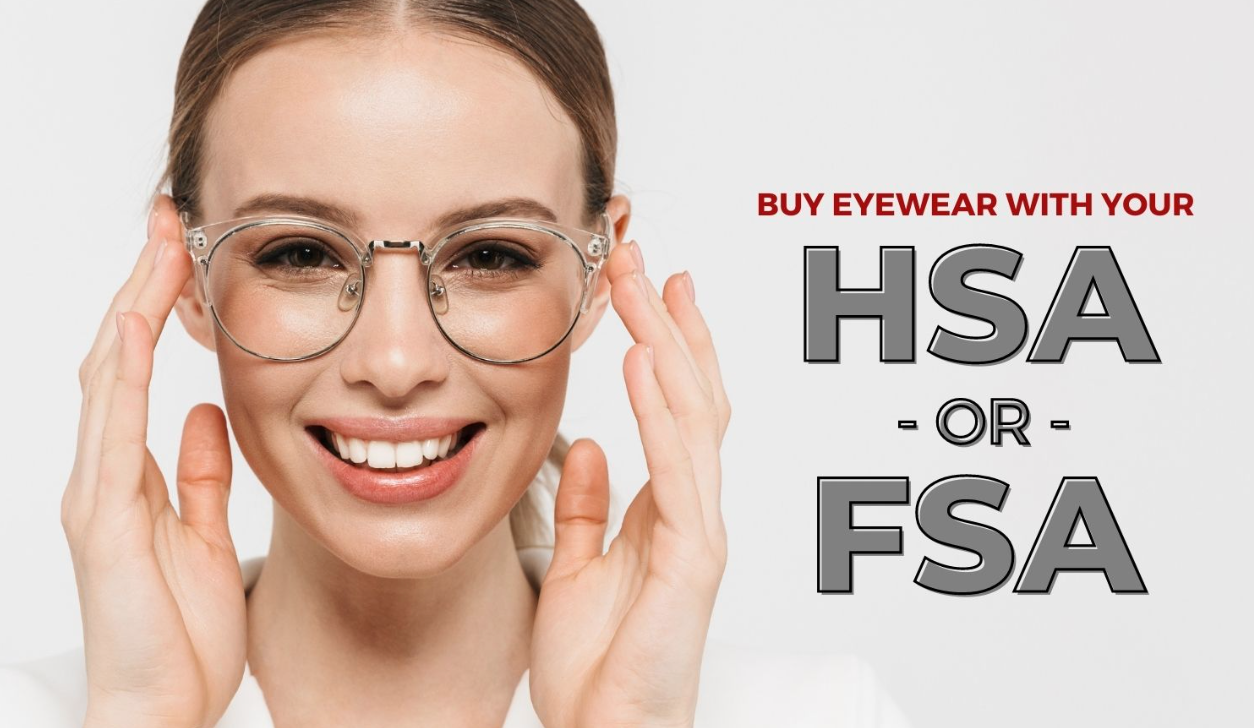Maximizing Your Healthcare Savings: A Guide to Using Your FSA or HSA for Eyewear
Posted by www.danielwalters.com on 9th Feb 2023

Maximizing Your Healthcare Savings: A Guide to Using Your FSA or HSA for Eyewear
As healthcare expenses continue to rise, utilizing your FSA (Flexible Spending Account) or HSA (Health Savings
Account) has become more important than ever. Both accounts allow you to set aside pre-tax dollars to pay for
eligible healthcare expenses, including those for eyeglasses and contact lenses.
FSA is an employer-sponsored account that allows employees to set aside pre-tax dollars to pay for eligible
healthcare expenses, including eyeglasses and contact lenses. The funds in an FSA account are not carried over
from year to year, so it's important to use the funds before the end of the plan year.
HSA is a type of savings account that is paired with a high-deductible health insurance plan. It allows individuals to
pay for eligible medical expenses with pre-tax dollars, including eyeglasses and contact lenses. The funds in an HSA
account roll over from year to year, so individuals can save for future healthcare expenses.
To use an FSA or HSA account to pay for eyewear, individuals typically need to provide a prescription from their eye
doctor and purchase the eyewear from an eligible vendor. They can then use their FSA or HSA debit card or submit a
claim form with receipts to get reimbursed for the expense.
It's important to check the specific rules and restrictions of your FSA or HSA plan before making any purchases, as
some plans may have different eligibility requirements and reimbursement policies.
Yes, there are some limitations when choosing eyewear if you're using FSA or HSA dollars. Here are a few of the
most common limitations:
- Prescription requirement: To use FSA or HSA dollars to pay for eyewear, you typically need to have a valid prescription from an eye doctor.
- Eligible vendors: You'll need to purchase your eyewear from an eligible vendor that accepts FSA or HSA dollars.
- Limitations on specific products: Some FSA or HSA plans may have restrictions on certain types of eyewear, such as non-prescription glasses or luxury frames.
- Plan restrictions: Some FSA or HSA plans may have restrictions on the amount of money that can be spent on eyewear each year or a maximum reimbursement amount.
- Timing restrictions: It's important to keep in mind that with an FSA, you'll need to use the funds by the end of the plan year or you'll lose them. With an HSA, the funds can be carried over to the next year, but it's important to check the specific rules of your plan.
Not all types of lenses are approved for FSA (Flexible Spending Account) and HSA (Health Savings Account)
coverage. The specific types of lenses that are covered by FSA and HSA dollars may vary depending on your plan.
Some common types of lenses that are likely to be approved include:
- Prescription lenses
If you have a valid prescription for eyeglasses or contacts, the cost of the lenses themselves is typically eligible for FSA and HSA reimbursement.
2. Standard lenses
Most standard, single-vision or multi-focal lenses are typically eligible for FSA and HSA reimbursement.
3. Specialty lenses
4. Polarized lenses
Polarized lenses can reduce glare and improve vision clarity, and they may be eligible for FSA and HSA
reimbursement.
5. Transitions lenses
Transitions lenses darken in response to sunlight and then lighten again when you're indoors, and they may be
eligible for FSA and HSA reimbursement.
6. Photochromic lenses
Photochromic lenses also darken in response to sunlight and lighten again when you're indoors, and they may be
eligible for FSA and HSA reimbursement.
7. Scratch-resistant lenses
Lenses with scratch-resistant coatings can help keep your lenses looking clear and new for longer, and they may be
eligible for FSA and HSA reimbursement.
Conclusion
At Daniel Walters, we understand the importance of making the most of your FSA or HSA and we’re here to help. Our
team is dedicated to making the process as easy and effortless as possible. If you need assistance, we’re happy to
provide you with an itemized invoice that you can submit to your insurance for reimbursement.
Paying for eyewear with an FSA or HSA account is a straightforward process. Say goodbye to the hassle of
navigating complicated insurance policies and let us help you make the most of your FSA or HSA.
Daniel Walters Eyewear
19301 Ventura Blvd, Suite 203
Tarzana, CA 91356
United States of America
Email: info@danielwalters.com
